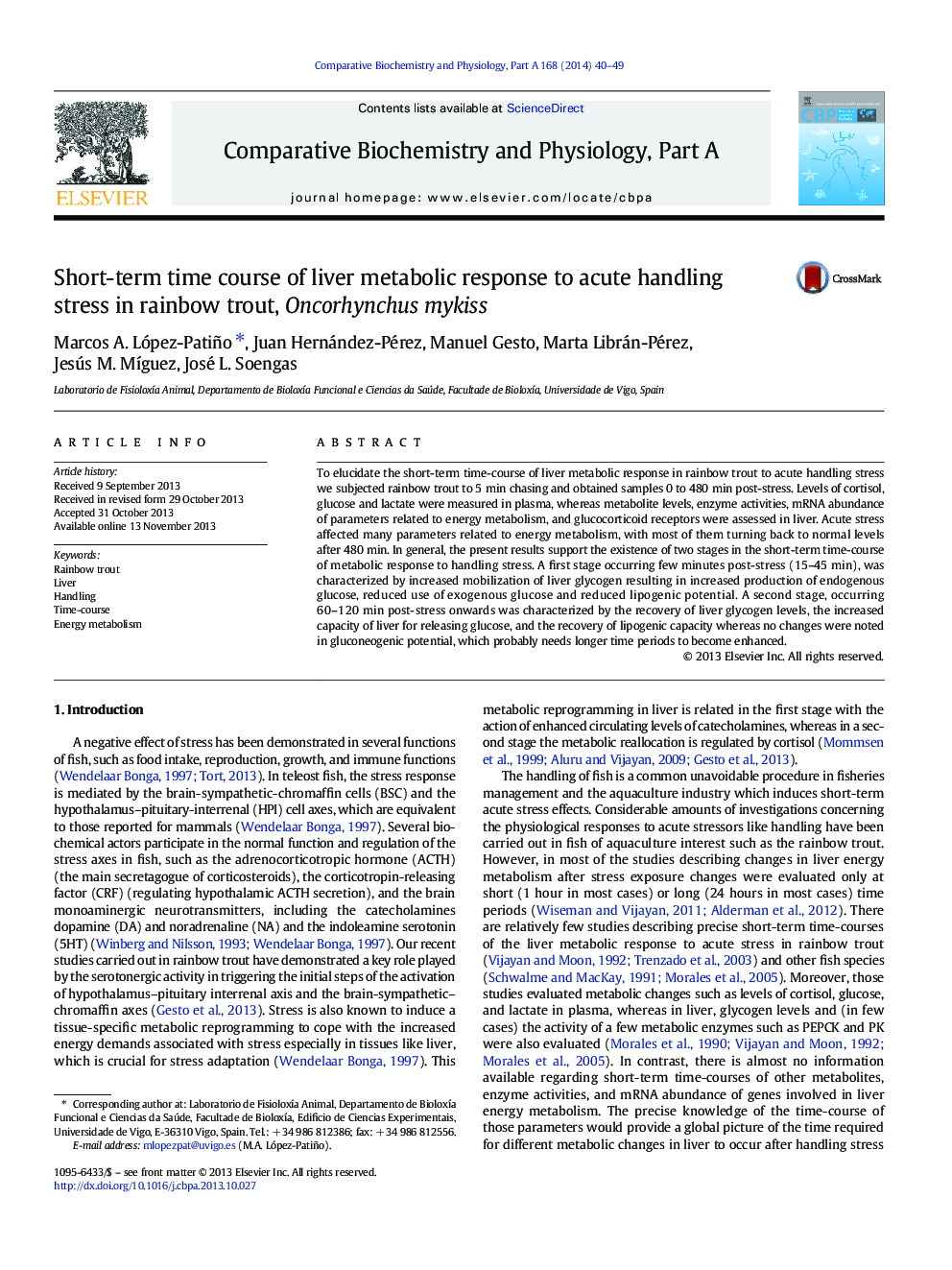| Article ID | Journal | Published Year | Pages | File Type |
|---|---|---|---|---|
| 1972260 | Comparative Biochemistry and Physiology Part A: Molecular & Integrative Physiology | 2014 | 10 Pages |
To elucidate the short-term time-course of liver metabolic response in rainbow trout to acute handling stress we subjected rainbow trout to 5 min chasing and obtained samples 0 to 480 min post-stress. Levels of cortisol, glucose and lactate were measured in plasma, whereas metabolite levels, enzyme activities, mRNA abundance of parameters related to energy metabolism, and glucocorticoid receptors were assessed in liver. Acute stress affected many parameters related to energy metabolism, with most of them turning back to normal levels after 480 min. In general, the present results support the existence of two stages in the short-term time-course of metabolic response to handling stress. A first stage occurring few minutes post-stress (15–45 min), was characterized by increased mobilization of liver glycogen resulting in increased production of endogenous glucose, reduced use of exogenous glucose and reduced lipogenic potential. A second stage, occurring 60–120 min post-stress onwards was characterized by the recovery of liver glycogen levels, the increased capacity of liver for releasing glucose, and the recovery of lipogenic capacity whereas no changes were noted in gluconeogenic potential, which probably needs longer time periods to become enhanced.
